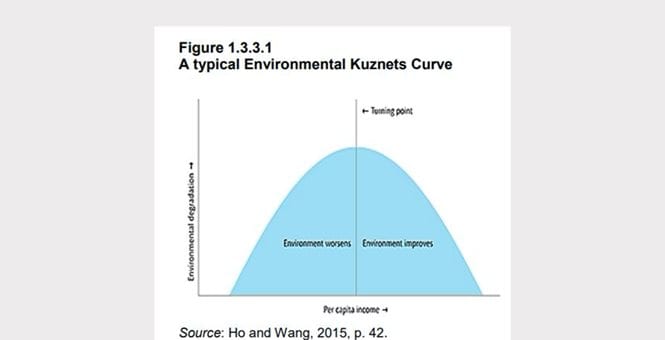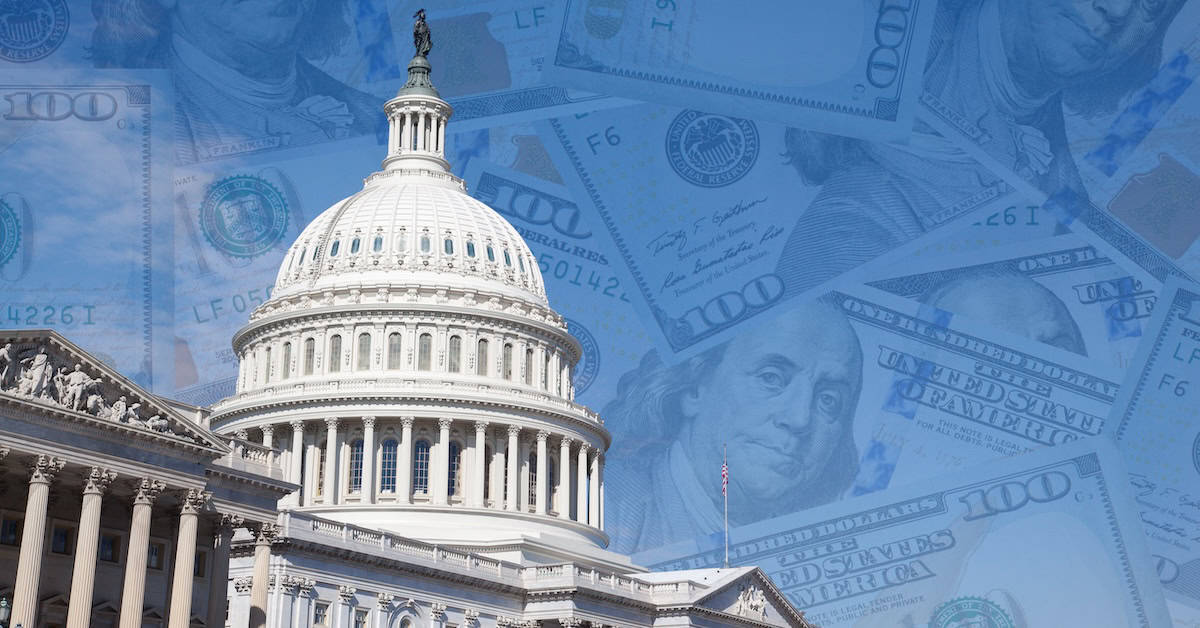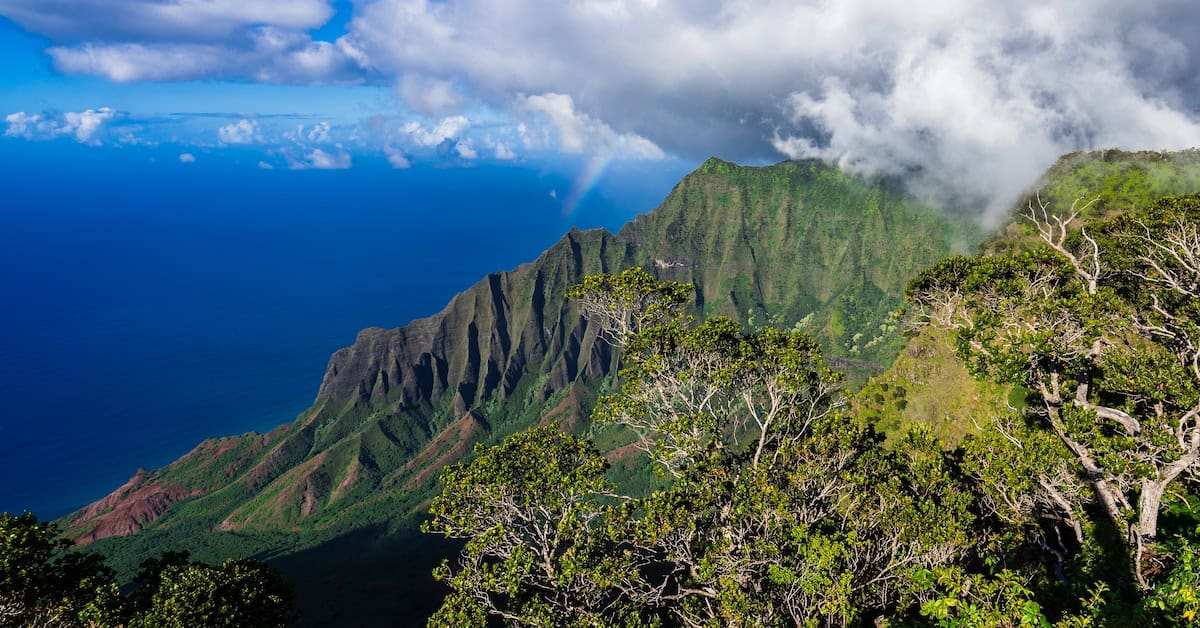For decades now, Green Parties in Scandinavia and Western Europe have argued that, although capitalism lifts people out of poverty, it should be replaced with socialism, which they claim is more likely to protect the environment.
Convincing evidence that this is a huge mistake is provided by Dr. Calvin Beisner, Founder and National Spokesman of the Cornwall Alliance for the Stewardship of Creation, in his book Is Capitalism Bad For The Environment? He gives irrefutable examples:
- When East Germany was unified with the West, the true impact of its socialist/communist form of government was revealed to outsiders for the first time. Its drinking waters were polluted beyond anything Western nations had experienced, its lakes were dead, and its forests were damaged.
- China’s Three Gorges Dam, on the Yangtze River, is the most destructive engineering project ever built—and it was built under socialist/communist rule. It pollutes everything in its path, submerging 140 towns, 1350 villages, and hundreds of factories. It has displaced 1.2 million people in its 420-mile wake, while releasing vast amounts of toxic waste into its reservoir as well as downstream.
- 40% of China’s rivers are polluted, 55% of the groundwater supplying 200 cities is polluted beyond safe levels.
- China’s severe air pollution blocks enough sunlight to reduce photosynthesis and thereby reduce crop yields. It is estimated that in 2010 there were a total of 8,000 premature deaths from air pollution in Beijing, Shanghai, Guangzhou and Xian.
- Deforestation in China has led to the creation of 950 square miles of desert each year.
These socialist environmental calamities are partly a result of a lack of property rights, where no one takes responsibility for the state of the environment. It is also due to the fact that socialism does not create enough wealth to afford the costs of making protection of the environment a high priority. In Climate Change Reconsidered II: Fossil Fuels” (CCR-II-Fossil Fuels), a 780-page report issued last year by the Nongovernmental International Panel on Climate Change (NIPCC), it is shown “how prosperity makes environmental protection a higher public goal and provides the resources needed to achieve it.” CCR-II-Fossil Fuels continues:
“Once basic demands for food, clothing, and shelter are met, people demand cleaner air, cleaner streams, more outdoor recreation, and the protection of wild lands. With higher incomes, citizens place higher priorities on environmental objectives.”
CCR-II-Fossil Fuels cite researchers Grossman and Krueger (1995) who:
“conducted an extensive literature review of air quality over time and around the world and found ambient air quality tended to deteriorate until average per-capita income reached about $6,000 to $8,000 per year (in 1985 dollars) and then began to sharply improve. Later research confirmed similar relationships for a wide range of countries and air quality, water quality, and other measures of environmental protection.”
CCR-II-Fossil Fuels describes what economists call Environmental Kuznets Curves (EKCs). EKCs show how environmental degradation rises with national per-capita income (although the benefits of industrialization to health and life nonetheless lead to declining rates of disease and premature deaths (i.e., to rising life expectancy)) until a certain critical point is reached, after which the environment starts to improve.

Source: Ho, M. and Wang, Z. 2015. Green growth for China? Resources. Washington, DC: Resources for the Future.
Before the creation of EKCs, many well-informed people thought that wealthier countries damaged their environment more than poorer nations. The only way out of this dilemma was to de-industrialize and reduce incomes, they thought. But we know now that the exact opposite is true. While factors such as the strength of democratic institutions, levels of educational achievement, and income equality play a role, environmental protection is closely correlated with prosperity.
In Colin Grabow’s article “If You Think Communism Is Bad for People, Check Out What It Did to the Environment,” he explains another problem with extreme leftist governments: “communism invariably means authoritarianism … with little tolerance for dissent or concerns about hazardous waste in the worker’s paradise. To voice an opinion that perhaps all is not quite well, or that the air smelled funny, was to invite suspicions of being a saboteur…or harboring bourgeois tendencies.”
Charges against capitalism have largely stemmed from Rachel Carson’s horribly flawed book Silent Spring, published in 1962. About the same time, James Gusave Speth, co-founder of the Natural Resource Defense Council, made five charges against capitalism in a number of his publications:
1- capitalism is indifferent to nature
2- capitalism is unsustainable because it promotes consumerism
3- capitalism leads to resource depletion and ecosystem damage
4- capitalism forces others to bear protection costs while industry profits
5- capitalism’s short-term goals blind it to long term harm
The short answer to each of these charges from Speth, apparently an avowed socialist, is a resounding WRONG.
All five of Speth’s claims indicate no knowledge of economics. Capitalism is a system whose entire purpose is to benefit all citizens’ standard of living in a free market with property rights at its core. Capitalism’s historical track record shows that it’s better than any other economic system so far devised at raising people out of poverty and at making efficient use of resources. No other system better protects or improves our natural environment. CCR-II-Fossil Fuels demonstrates that the prosperity made possible by free markets creates the circumstances needed to better protect the environment. The report concludes:
“Without markets, a poorer and hungrier world would have little regard for the environment or the interests of future generations, being too busy meeting the more immediate needs of finding food and shelter.”
President Donald Trump demonstrated in his April 22, 2019 Earth Day message that he understands all this very well. He said:
“Environmental protection and economic prosperity go hand in hand. A strong market economy is essential to protecting our critical natural resources and fostering a legacy of conservation.”
Bravo to President Trump for having the courage to say what is real: prosperity and free markets are what really matter for environmental protection.


























Dr. Jay Lehr and Mr. Tom Harris argument that socialism is bad for the environment and capitalism is good reflects their political worldview rather than the science.
Dr. Lehr admitted it was government regulations in the 1970’s and 1980’s that cleaned-up our environment. He wrote “environmental improvement and protection program during the ensuing two decades that has become the most successful grass roots, self-improvement program in our nations history.” https://www.cfact.org/2019/05/20/environmental-myths/ Scandinavia and Western Europe are more socialistic than America and have stronger environmental laws.
Developing nations have little to no environmental regulations. Mr. Harris and Dr. Lehr are advocates for deregulation. https://americaoutloud.news/trump-right-to-try-to-end-the-war-on-coal/ Their organization the Heartland Institute has been a predominate cheerleader for undoing environmental regulations. https://www.heartland.org/publications-resources/publications/research–commentary-heartland-brief-argues-that-epas-endangerment-finding-should-be-repealed